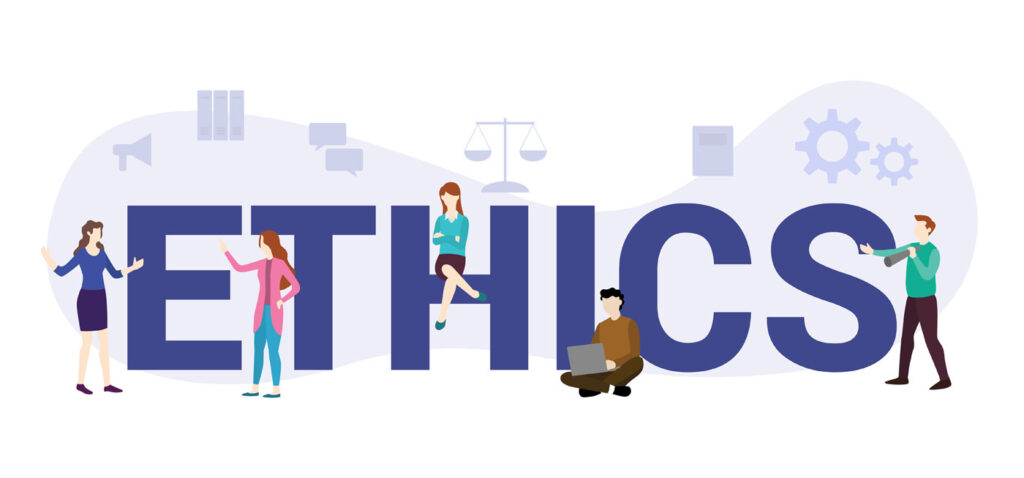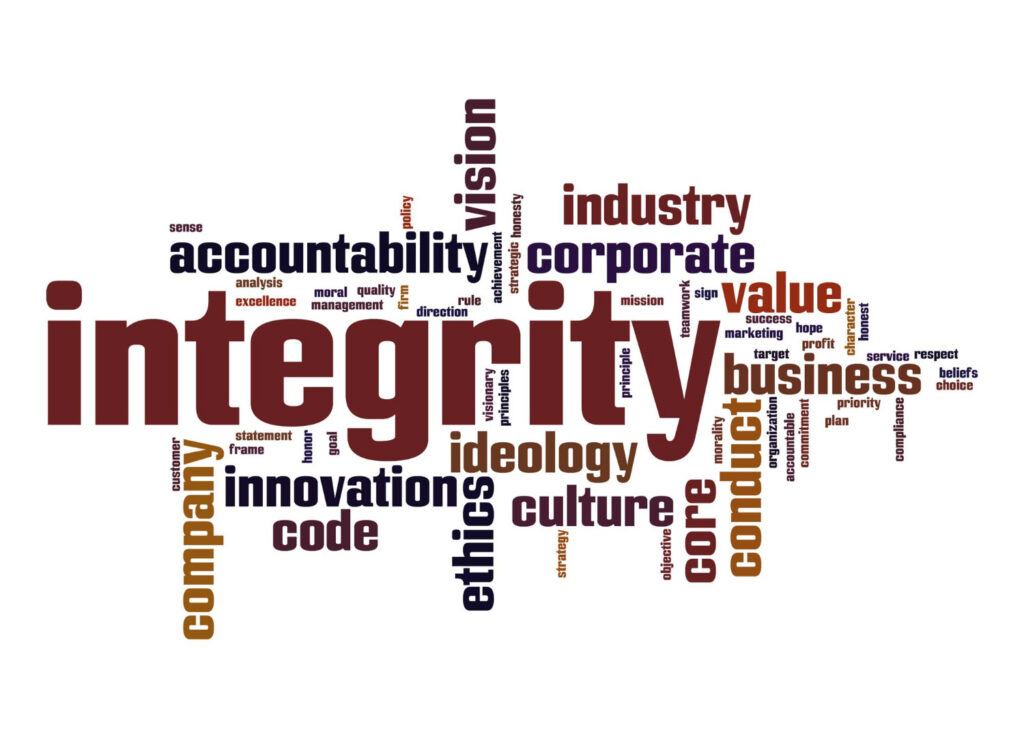Introduction
Ethical governance and integrity in public service involve applying moral principles like honesty, transparency and accountability to ensure public officials act in public interest, build trust and prevent corruption. The key values include transparency, objectivity and a commitment to a public welfare. This foundation of trust and ethical conduct is vital for effective governance just societies and sustainable development often supported by codes of conduct and Whistleblower protection to uphold these standards. These fundamental concepts are essential for ensuring that public institutions serve the common good in a just, transparent, and accountable manner while maintaining public trust, promoting fairness, and ensuring that resources are used efficiently and effectively.

Good governance relies on public service integrity, which entails ethical standards, transparency, and accountability in public office, directly combating corruption by ensuring public welfare is prioritized over private gain. Corruption erodes public trust, weakens democracy, and hinders development. Strategies to foster integrity and combat corruption include strengthening whistleblower protections, using e-governance and technology, implementing codes of conduct, and establishing performance-based incentives within public institutions.
Corruptions Perception Index
The Corruption Perceptions Index (CPI) is an index that scores and ranks countries by their perceived levels of public sector corruption and generally defines corruption as an abuse of entrusted power for private gain including both petty and grand forms of corruption, as well as capture of the state by elites and private interests. According to the Transparency International, Corruption hampers climate action by misusing funds meant for mitigation and adaptation, with fossil-fuel interests obstructing policies.

The 2024 Corruption Perceptions Index published by Transparency International, places India at 96th rank, out of 180 countries, with a score of 38. This assessment is based on a score of 1 to 100, with score of hundred implying as very clean country (i.e. having zero corruption) and score of zero as very corrupt country (i.e. epitome of corruption). No country has scored above 90, nor was any rated below 10. More than 2/3 countries scored below 50, while the average score is 43.
The government of India, in pursuance of its commitment to “zero tolerance against corruption”, has taken several measures to combat corruption, which include systemic improvements and reforms to provide transparent citizen-friendly services and reduce corruption, Further, the disbursement of welfare benefits directly to the citizens under various schemes of the government in a transparent manner through the direct benefit transfer (DBT) mode, implementation of e-tendering in public procurements, introduction of e-governance and simplification of procedures and systems besides the introduction of procurement through the Government e-marketplace (GeM) as measures to check corruption. The key components of ethical governance and integrity in the context of public service are discussed below:
Ethical Governance
Ethical governance refers to the adherence to moral principles and standards in the functioning of public institutions. It focuses on ensuring that government agencies, officials, and public servants make decisions that are in the best interests of the public, guided by ethics, law, and the common good.

Key Components:
- Transparency: Government actions, decisions, and policies must be clear, open, and easily accessible to the public. This builds trust and allows for accountability.
- Accountability: Public officials should be held accountable for their actions and decisions. This includes being answerable to the public, legislative bodies, and oversight bodies.
- Fairness and Justice: Decisions must be made impartially, without favoritism, discrimination, or bias. Ethical governance ensures that everyone is treated equally under the law.
- Rule of Law: Ethical governance requires that decisions be made in accordance with established laws and regulations, and that public servants comply with legal and ethical standards.
- Citizen Participation: A key aspect of ethical governance is the inclusion of citizens in the decision-making process. This includes public consultations, feedback mechanisms, and participatory approaches that empower people to have a say in how their government operates.
Integrity in Public Service
Integrity is the quality of being honest or having strong moral principles. People with integrity are generally known to be trustworthy, honest and kind. Honesty and integrity are defined as qualities that allow an individual to do the right thing as often as much as possible and when they have done a wrong thing, they admit to why they have done.

Integrity refers to the consistency of actions, values, methods, and principles. In the context of public service, it is about maintaining high ethical standards and performing duties with honesty and professionalism. Public servants with integrity ensure that their actions are consistent with the values of public service, such as honesty, accountability, fairness, and responsibility.
Why live with Integrity?
- It’s Easier: Living with interparty is easier than living a deceitful life, which making unethical decisions, it is often easier in the short term, it eventually takes its toll. There is no real happiness to be found in struggling to remember your lies, living in fear of getting caught and not feeling like you truly earned your earned. It’s empty and stressful, living with integrity brings wholeness and peace. Your conscience can rest easy and you can look at yourself in the mirror with pride.
- It builds Trust: A man of integrity is a man other can count on. They know he will do what he says he will do. He is promoted at work because he can be trusted with greater responsibility. His wife knows that when he says he is working late, he really is. His friend feel comfortable opening up to him and turning to him at times of crises. When you choose to live with integrity, all your relationships will be healthier, stronger and more satisfying.
- It serves as basis for value Judgements: A commitment to live a life of integrity allows you clarity, when you have to make hard choices. You can’t be at war with yourself over which path to choose. Instead, you will experience the confidence that causes with having every aspect of your life knit together in a unity of purpose.
Key Aspects of Integrity in Public Service:
- Honesty and Truthfulness: Public servants must be truthful and transparent in their dealings with the public, colleagues, and other stakeholders.
- Avoidance of Conflicts of Interest: Public servants must avoid situations where their personal interests conflict with their professional responsibilities. This includes refraining from accepting bribes or favours that could influence their decisions.
- Commitment to the Public Good: Public servants must act in the best interest of society, prioritizing the welfare of citizens over personal gain.
- Ethical Decision-Making: Integrity requires public servants to make decisions that align with ethical values, even when it may not be the most convenient or popular choice.
- Respect for Public Trust: Public officials are entrusted with power and resources on behalf of the public. They must use these resources responsibly, safeguarding the public’s confidence in their actions.
Challenges to Ethical Governance and Integrity
While ethical governance and integrity are fundamental to effective public service, there are various challenges that public officials face in maintaining these principles:
- Corruption: Bribery, nepotism, and other forms of corruption undermine ethical governance. Corruption erodes public trust and leads to inefficient resource allocation.
- Political Pressure: Public officials may face pressure from political leaders or powerful interest groups to make decisions that serve narrow agendas, rather than the common good.
- Lack of Accountability Mechanisms: In some cases, oversight bodies or legal frameworks may be weak, allowing unethical behaviour to go unchecked.
- Resource Constraints: Public servants may face challenges in fulfilling their duties due to limited budgets, time constraints, or insufficient training in ethical decision-making.
- Cultural Factors: In some societies, there may be cultural norms or practices that enable or even encourage unethical behaviour in public service.
Promoting Ethical Governance and Integrity
To promote ethical governance and integrity in public service, governments, organizations, and citizens can take several steps:
Institutional Measures:
- Clear Codes of Conduct: Establishing and enforcing clear codes of conduct and ethical standards for public servants helps to set expectations for behaviour.
- Training and Education: Regular ethics training for public servants can ensure that they 5are equipped with the knowledge and skills to make ethical decisions in complex situations.
- Independent Oversight Bodies: Independent institutions such as anti-corruption commissions, ombudsman offices, and audit agencies are essential for ensuring accountability and detecting unethical practices.
- Whistleblower Protection: Public servants should be encouraged to report unethical behaviour, with strong legal protections to shield whistleblowers from retaliation.
Public Participation and Transparency:
- Open Data and Access to Information: Governments should provide open access to information, allowing citizens to hold public servants accountable.
- Engagement with Civil Society: Civil society organizations, media, and the public play a key role in ensuring transparency and advocating for ethical standards in governance.
Political Commitment:
- Political Will: Strong political leadership is crucial in setting a tone of integrity and ethical behaviour. Political leaders must model ethical behaviour and be committed to implementing reforms that promote integrity.
- Legal Frameworks: Robust anti-corruption laws, conflict of interest regulations, and ethical guidelines help to create a framework within which public servants can operate with integrity.
The Role of Ethics in Public Administration
Public administration is the implementation arm of government policy, and ethical governance and integrity are vital in ensuring that policies are carried out in a manner that benefits society as a whole. Ethical leadership in public administration helps:
- Ensure efficient use of resources: Ethical leadership reduces waste, fraud, and mismanagement, leading to better allocation of public resources.
- Foster public trust: When citizens believe their government is acting ethically, they are more likely to trust government decisions and participate in the democratic process.
- Support social justice: Ethical governance ensures that vulnerable populations are treated with fairness and justice, reducing inequality.
Examples of Ethical Governance
- India: Right to Information Act (RTI) for transparency, e-governance initiatives like, GeM and CPPP for increasing transparency in government procurement, the MyGov portal to reduce bureaucracy, the Code of Conduct for Ministers, the Centralized Public Grievance Redress and Monitoring System (CPGRAMS) for citizen feedback, the Prevention of Corruption Act to combat corruption, and the establishment of Parliamentary ethics committees. These mechanisms aim to foster accountability, promote integrity, and ensure fair treatment for citizens.
- Singapore: The country has consistently ranked highly for its commitment to transparency and integrity in public service. Through strong legal frameworks, transparency, and a zero-tolerance approach to corruption, Singapore has established a reputation for clean and efficient governance.
- New Zealand: Known for its ethical standards in public administration, New Zealand’s public service operates under a clear code of conduct, with strong mechanisms for transparency, accountability, and oversight.
Examples of integrity in public service:
- Resisting Corruption: An official refusing bribes or taking a firm stand against illegal sand mining, even when facing pressure, demonstrates moral courage and integrity.
- Ensuring Fairness: A judge delivering judgments based solely on evidence and law, without regard for a person’s status or influence, upholds the principle of justice and equality.
- Upholding Ethical Standards: An official who identifies and reports a conflict of interest, or openly declares any financial obligations that could influence their duties, acts with integrity by prioritizing public interest over personal gain.
- Whistleblowing: Individuals who report corruption or misconduct, despite personal risks, exemplify integrity by exposing unethical practices to uphold public trust and promote accountability.
- Transparency in Decision-Making: Public servants who ensure transparency in their decision-making processes, providing timely and accurate information to the public, build confidence and accountability.
- Impartial Service: An official consistently treating all citizens with fairness and without favouritism, regardless of their background or affiliations, demonstrates integrity and commitment to meritocracy.
Conclusion
Ethical governance and integrity in public service are essential for fostering good governance, maintaining public trust, and ensuring that government decisions serve the common good. Public institutions must be transparent, accountable, and committed to ethical decision-making, while also providing a framework of oversight and protection for both citizens and public servants. Ensuring these principles are upheld, requires collaboration across all levels of government, civil society, and the public at large.

